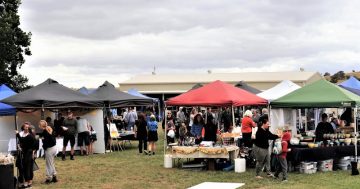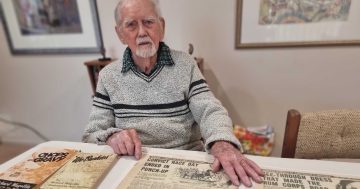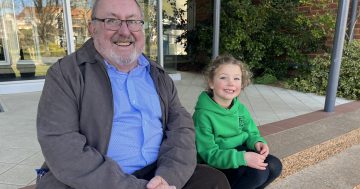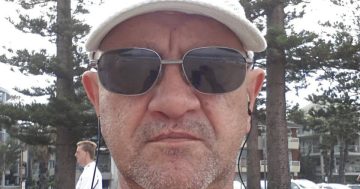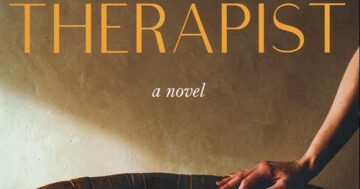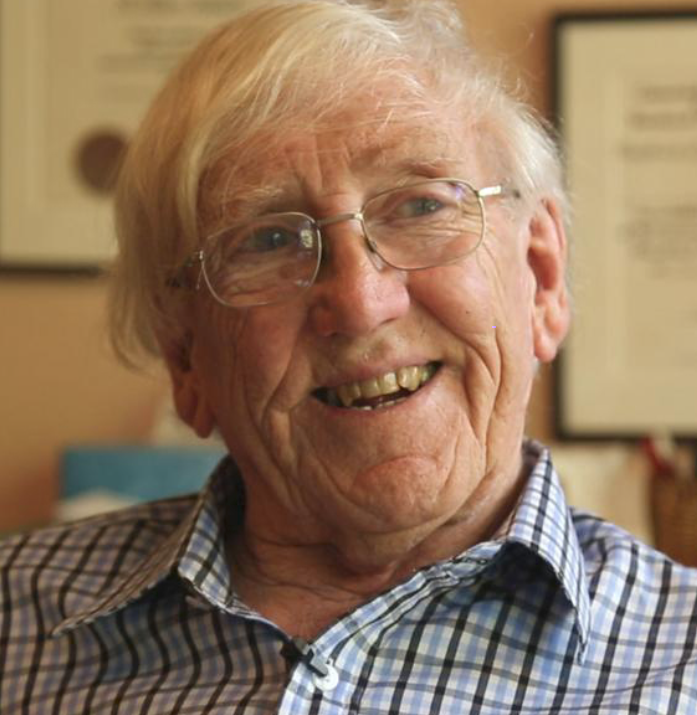
Alan Foskett (pictured in 2013) was working on his 45th publication when he died. Photo: Supplied.
Canberra has lost a treasure. Alan Foskett OAM passed earlier this month, aged 93.
A passionate Canberran and prolific writer, Alan documented Canberra’s social history over decades, penning it in a warm, engaging way, ensuring this knowledge is kept in perpetuity.
Arriving in Canberra in 1950 as a young graduate, Alan soon became involved in the life of a burgeoning city, then with its small population of only 15,000. Trained in urban geography and urban planning, Alan landed in Canberra at a time of development and transition from a disconnected bush capital to a functional and beautiful national capital.
He was at the forefront of the city’s development, working for the National Capital Development Commission from 1958 to 1967. He witnessed the translocation of public servants from Melbourne, the filling of the lake, the development of satellite cities and the social fabric of Canberra society take shape. And he wrote about it all.
Alan’s work was old school. He never gained computer skills, instead writing in longhand or using a typewriter.
His publications were simple, no fuss A4, straight to the point and highly readable. They were meaty, full of descriptions, with many photos collected over time. They contained a wealth of detail and they continue to be very useful reference books. He wasn’t concerned about design and artistic covers, he was focused on the content, the oral history, the accuracy and the human stories within. The diverse depth of Alan’s writing included the histories of Reid Preschool, Canberra City Bowling Club, Moreshead Retirement Village, local cricket clubs, Canberra’s real estate profession, Community Health Nursing, ACT Education, Ainslie Football Club and the Campbell community.
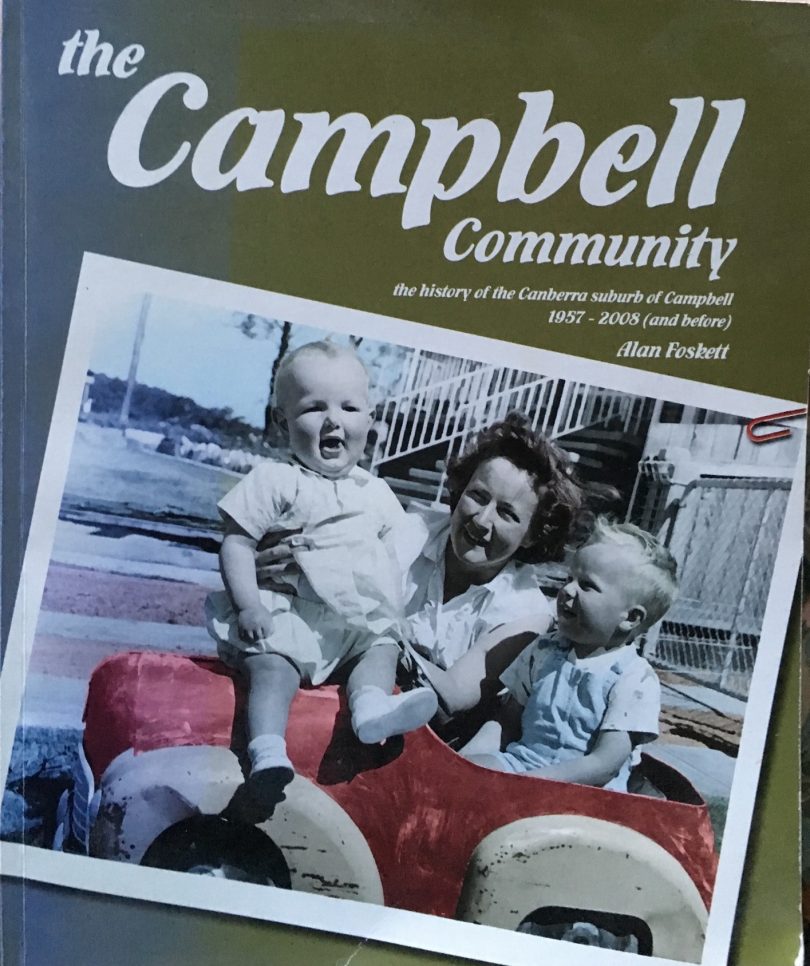
Alan Foskett was a prolific chronicler of the Canberra experience. Photo: M Ruhfus.
Of particular note is Alan’s account of Canberra’s early hostels and hotels.
With a shortage of housing, most newcomers to Canberra started their professional life in Canberra living in hostels. Alan began his Canberra journey in 1950 in Reid House, a hostel for single white-collar workers. Life there was very basic. The fibro building was uninsulated and unheated, but it was home to Alan for three years. Reid House was a happy place for him, and where he formed lifelong friendships. At that time, social activities, sport, and music revolved around Canberra’s hostels. To celebrate the 50th anniversary of the opening of Reid House, in 2000, Alan wrote a history of the hostel, Reid – House of Fame. This account details people and activities, capturing the essence of early Canberra life.
I first met Alan just before his account of Reid House was published. I was researching the first edition of a guidebook to Canberra, Canberra’s Secrets, which was published in 1999.
I was struck by Alan’s commitment to this city, and his passion for telling its story in an accurate and entertaining way. Alan travelled across town to deliver his latest publication to my door and his kindness and authenticity shone through. Over the years, he was always ready and willing to answer any questions I had, explaining things in detail, telling a great story, and always with a smile and enthusiastic energy.
Never letting the ink dry for long, Alan was always working on his next publication. In total, he completed 44 works. Alan’s last work, his 45th, was in progress at the time of his death – Memories of Early Canberra – Stories and Images of Life in Canberra in the Early Days.
Alan Foskett was awarded a Medal of the Order Australia (OAM) for his services to ACT history in 2009. He was also honoured with an Australian of the Year nomination, is acknowledged on the ACT Honour Walk in the city centre and was a recipient of the Heritage Minister’s Living Treasure award.
Alan’s wife of 63 years, May, predeceased him in 2015. They had four children, Anne, Ian, Linda and Jane.
Vale Alan Foskett. Your never-tiring efforts will always shine a light on Canberra, its history and the ‘people stories’ within. Because of you, the memory will stay alive.











